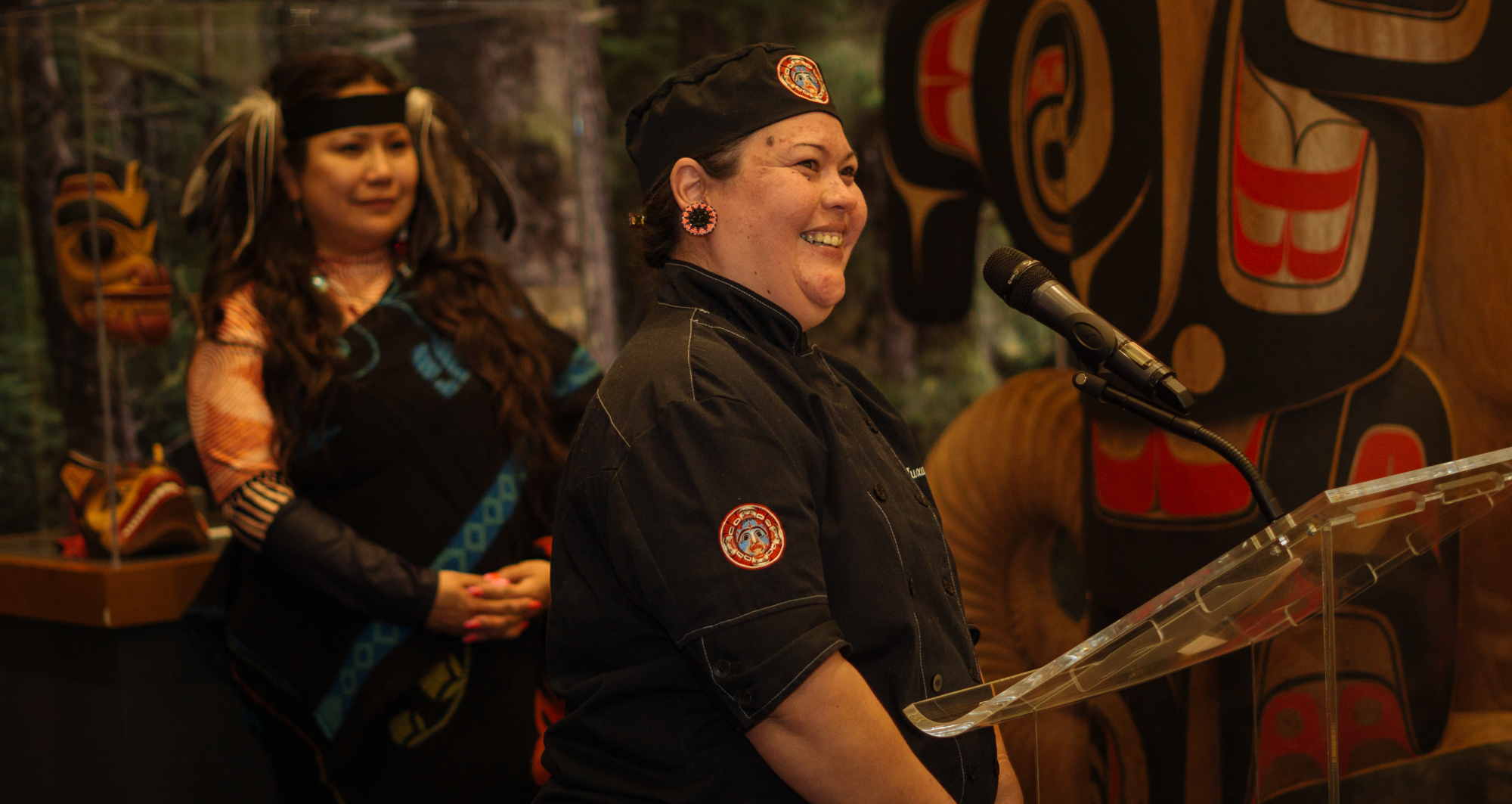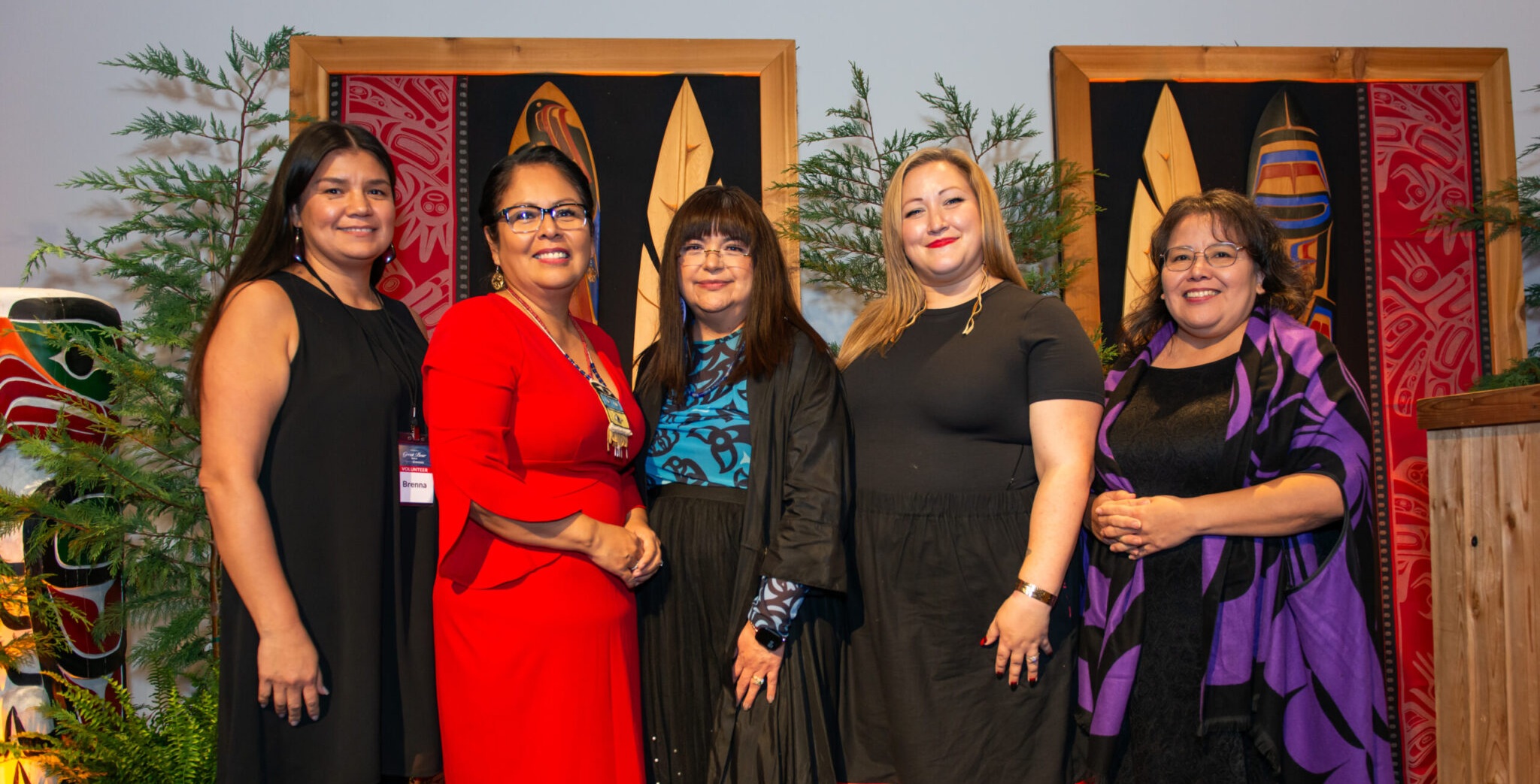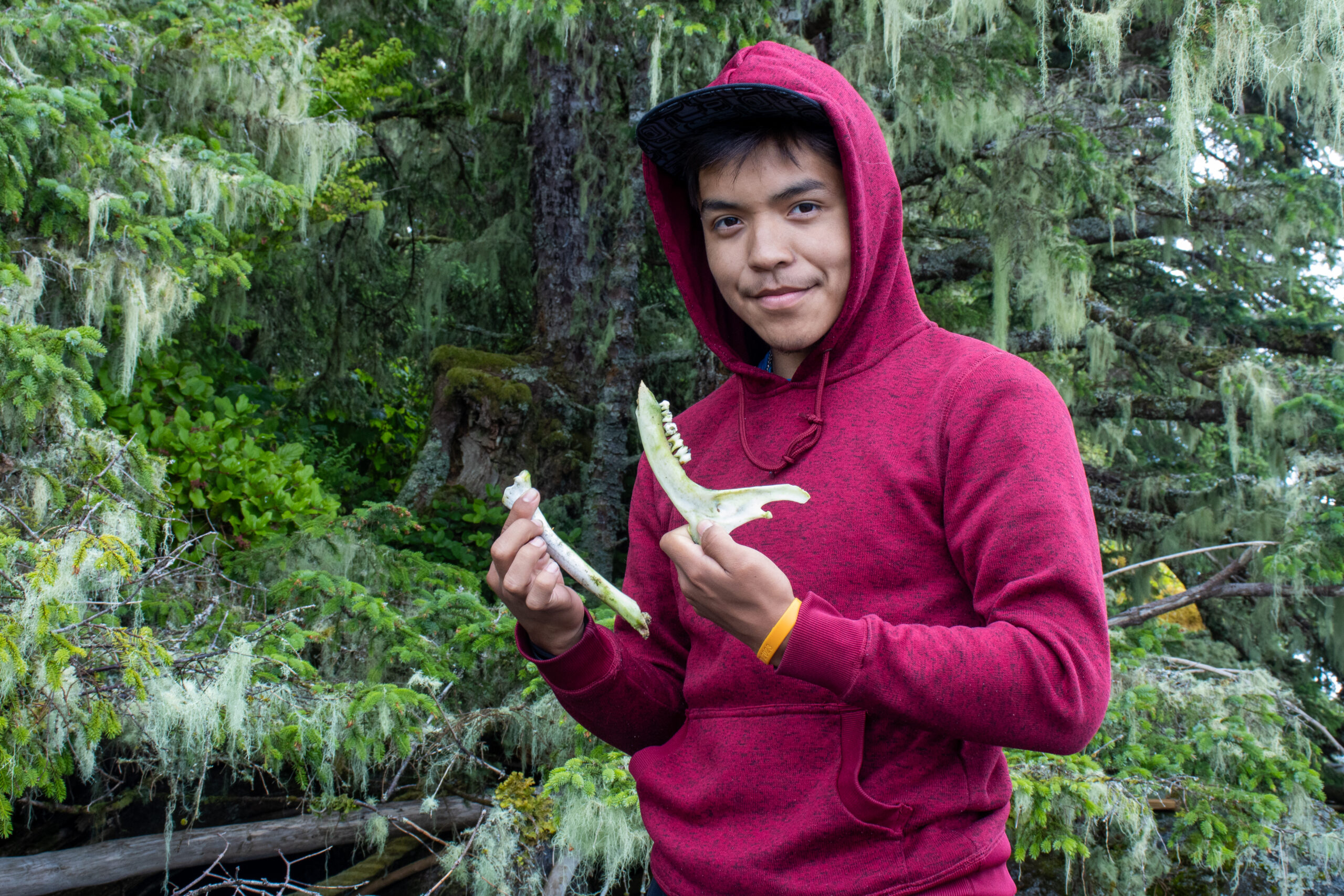From the river to the smokehouse to catering important meals in big cities — Ximana Nola Mack is speaking her truth and giving people a taste of her people’s foods and food culture that she says is so worthy of protecting.
Nola was raised up in a smokehouse, she says, the place she learned to express love. Her connection and dedication to her traditional foods was instilled in her at a young age and has carried into all aspects of her life and work. Nola just designed an Indigenous fine dining menu for an important feast held at the Bill Reid Gallery to set the table between three levels of government dedicated to improved marine management.
“I’m Nuxalk and Carrier. My mother is from Bella Coola, my father from Fort St. James. My Nuxalk name ‘Ximana’ means bright light woman,” Nola says over the phone. “Every year, both of my families would come together… we’d invite my Carrier family to come down. In Bella Coola, we’re called ‘salmon bellies,’ known for our salmon. Up north, they’re known for their moose meat, so we would definitely trade and barter.”
Nola says she remembers being as young as five years old, helping herself to dried fish, half-smoked fish, always having a table of moose meat and other traditional foods around. At 11 years old, during summer break from school, her dad woke her up and told her to get outside and help her grandmother cut fish — a practice that continued for the rest of her life.
“I had to get out there and help her. She was old, an Elder. My grandma was just in heaven in the smokehouse, she wanted to live out there. That was my first experience feeling a sense of accomplishment, appreciation,” she says.
That’s where we learned how to express our love for each other.”
On Feb 2, Nola was invited to cater a dinner hosted by Coastal First Nations (CFN), meant to ‘Set the Table’ for work moving forward on Marine Protected Areas in the Great Bear Sea. The dinner closed off the fifth Marine Protected Areas Congress IMPAC5 which ran from Feb 3-9 in xʷməθkʷəy̓əm (Musqueam), Sḵwx̱wú7mesh (Squamish), and səlilwətaɬ (Tsleil-Waututh) territories. CFN CEO Christine Smith-Martin saw Nola in Montreal at the COP15 UN Biodiversity Conference in December, where she was showcasing Nuxalk food culture and sharing about the importance of Indigenous food sovereignty and thought she’d be the right fit for the event.
Nola teamed up with Executive Chef Dino Renaerts from Bon Vivant Catering, his mentee Andrew Brazeau-George from the Wet’suwet’en Nation and a few of their staff, to prepare a one-of-a-kind meal held at the Bill Reid Gallery. Nola brought Nuxalk gold with her — dried salmon, dried seaweed, oolichan grease, barbecued salmon, and a collection of specialty spices and flavours to customize the meal.
The team prepared bison meatballs, mixed berry bannock, salmon barbecue stew with seaweed and grease and clam fritters and prawns for a starter. The main consisted of barbecue fish with herring eggs, wild rice with seaweed, stinging nettle and herring eggs, oolichan and pickled beets. For desert, they served soapberry cheesecake with mixed berry compote and a transitional rosehip and stinging nettle tea. The food, a product of Nola’s family, community and many coastal people’s ways of fishing, harvesting, trading and preserving, truly set the table and gave the guests a taste of what it is they’re committing to protect.
“It’s been a long time coming to get here,” Nola tells the room after they finish their meal and applaud the Chefs. “It wasn’t an easy journey and I’m not afraid to tell my story.”
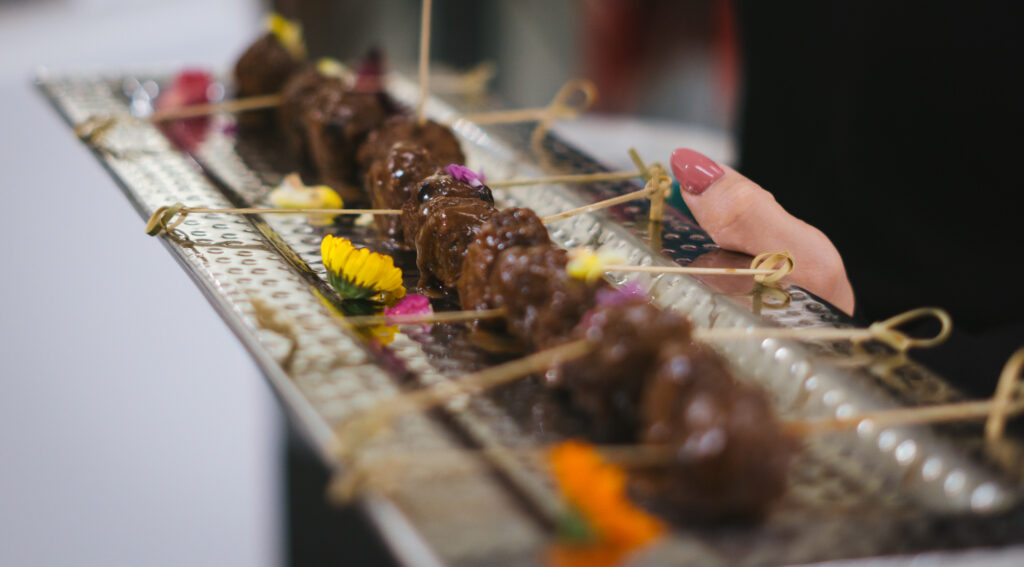
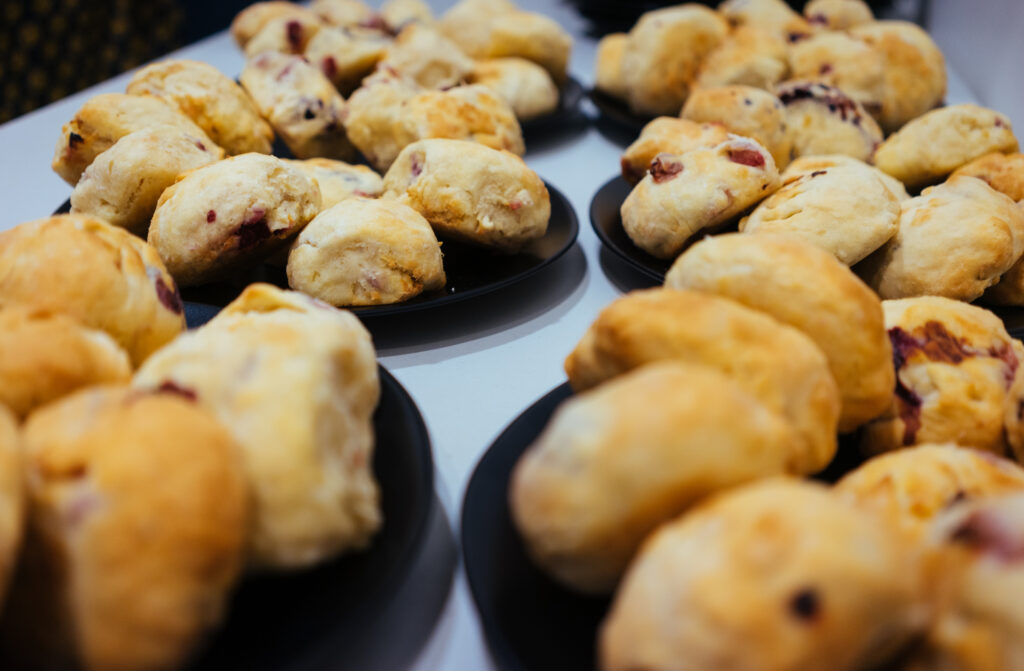
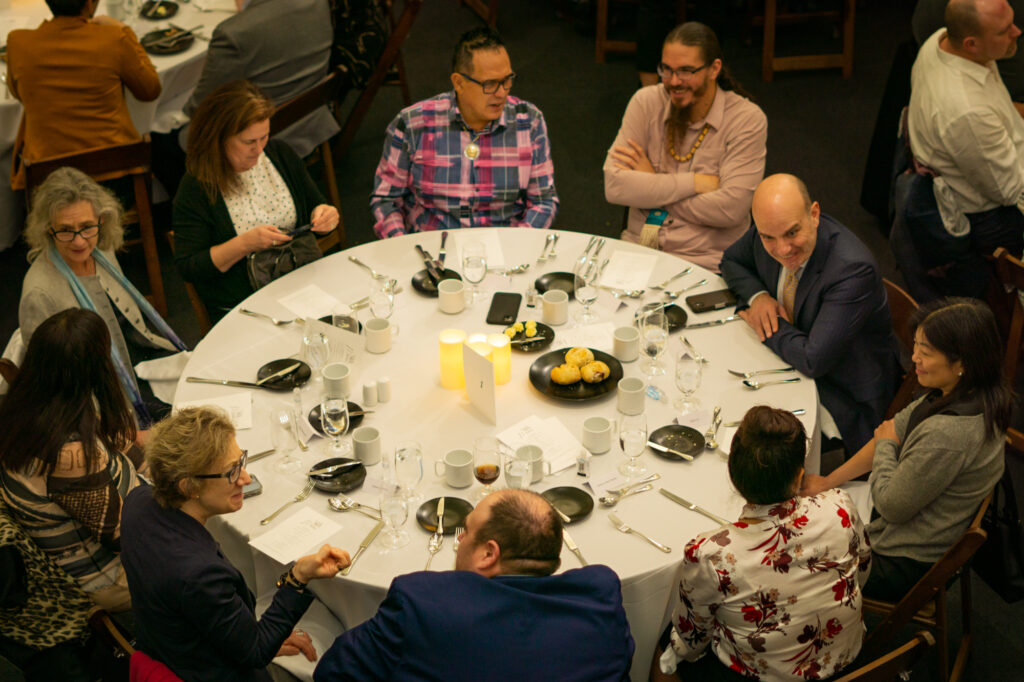
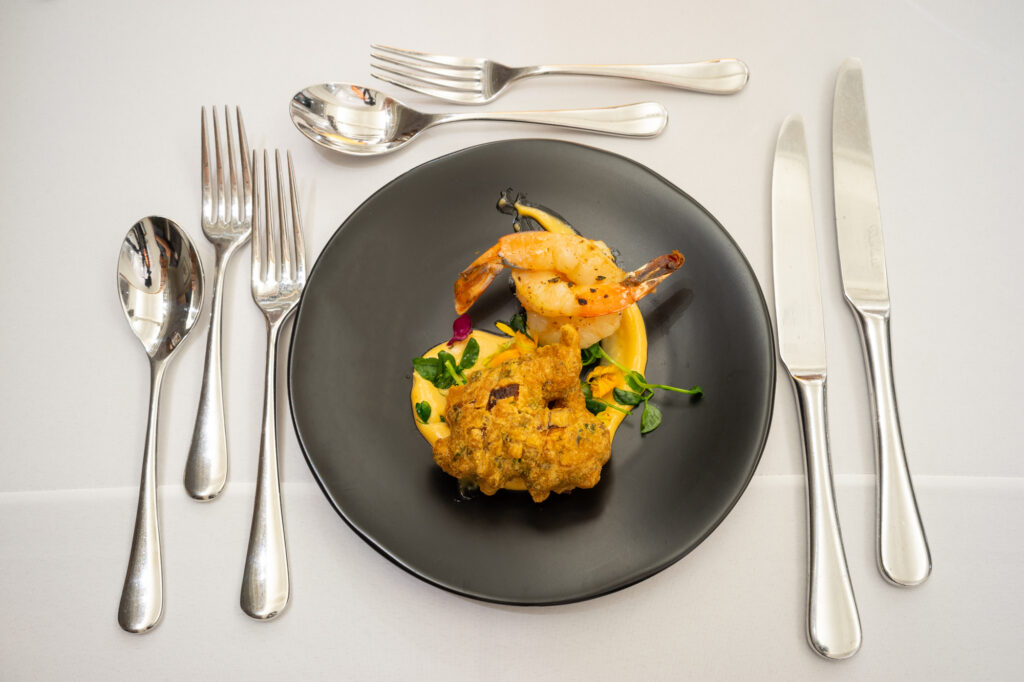
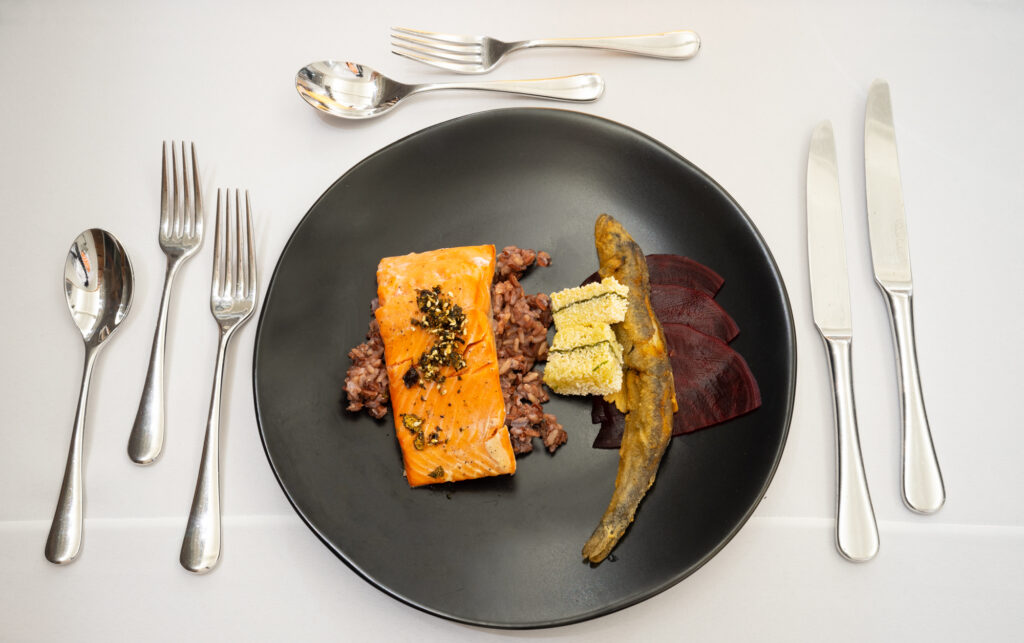
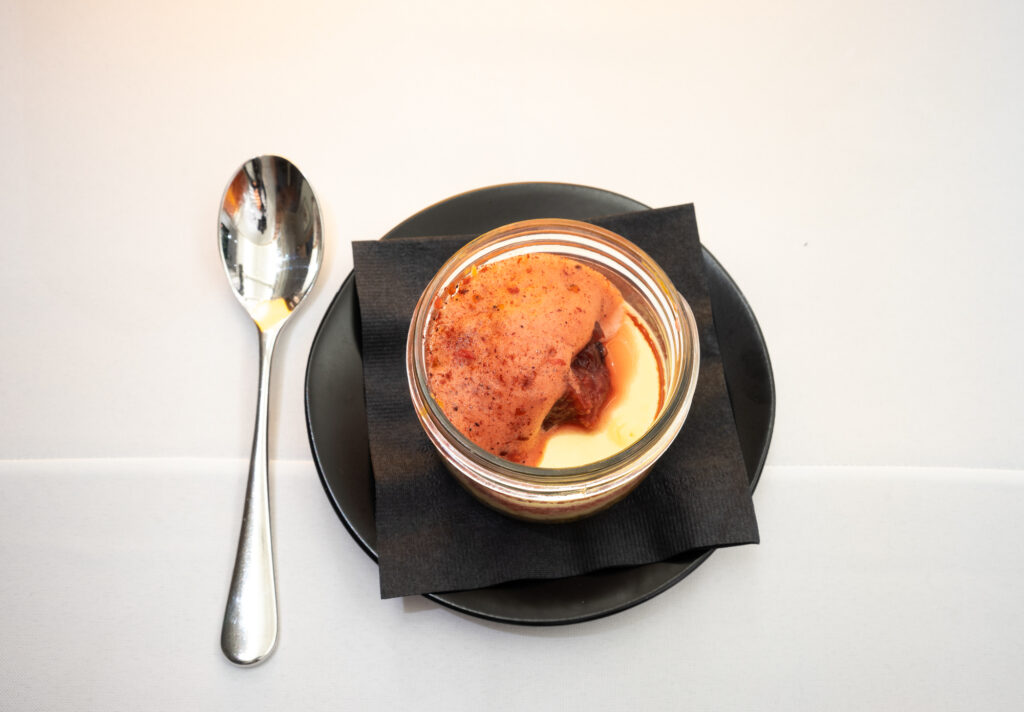
‘Knowledge is power’
Nola says she grew up poor, yet rich. Her family dealt with the intergenerational impacts of residential schools and addictions, and struggled in ways, but her family’s freezers were always full — that connection to their foods and the importance of passing on the knowledge was never lost.
“We were so grateful. The outcome of it, being able to help ourselves…we ate fish every day until we got sick of it…all summer long…it was our feed…both my grandmothers were out there. I was taught by my mothers, my aunties, my grandfather — it was a family gathering.”
Those early memories in the smokehouse, on the river, gathering and working with her family around seasonal foods to sustain the year “carved the rest of her life,” Nola says. “I found a partner that also grew up in the smokehouse and we carried on with our lives,” Nola says. “My husband is a fisherman, he’s trained our five children how to fish the river. We need to continue sharing what we know, knowledge is power.”
As Nola got older, she started to recognize that not everyone valued or had the opportunity to have traditional foods and practices in the same way her family did. She went to culinary school and didn’t see any representation of Indigenous cuisine, she says, other than Navajo bread or Three Sisters Soup.
“I felt ripped off. I started asking, where’s our cuisine?”
She says she felt a pull to push the importance of her traditional foods, starting in her own community. She ran a restaurant for a short period of time, to try and showcase their foods, but she says it wasn’t the time.
“Our people weren’t ready for it, many have lost the taste, the connection to the water and land food. It’s kind of lost along the way. A lot of people are dependent on the grocery store,” Nola says. “There are some that still eat our old foods and I’m really close with the majority of the ones still harvesting, producing food.”
Nola guesses that about 10 percent of her community are still actively doing fish in the smokehouse. These families are very tight-knit, she says, their bonds very strong. But a lot of people can’t afford to pay the fees to get the boats into the river or can’t find young ones to do the labour of fishing.
“A lot of it has to do with poverty. We need to work together, because we realized the younger generations aren’t getting what we grew up with. You look at the most expensive thing on a menu in a restaurant and what is it? It’s seafood,” Nola says. “We eat like kings and queens every day.”
Nola says she sees more than ever the need for her community to “come together.” She worked on food security projects in her community and did interviews with community members. She heard about who’s working with their foods, who isn’t, and who wants to.
“All the single moms are basically crying out saying they can’t afford to do this, but would love it. They all miss our foods, have memories. Here I am wanting to pull out my magic wand and make it happen for everyone. I can’t do that right now. So I need to be a truth speaker, to be able to speak about what’s happening here.”
Nola says she is trying to find funds to help “figure this out” for her people, and she takes inspiration from other Indigenous communities for solutions.
“When I go to my father’s side, they have a great system, they call it Old Town. They take a whole group of people over and harvest their fish and work for two weeks straight and get all our fish done and that way everyone goes home with something,” she says. “We really need those family camps, we need to be together again, to recognize that each family structure is important, everyone’s important.”
‘When you take our food away, I grieve for it’
Nola has been trading and bartering her whole life and has noticed the impacts of climate change, especially in the last few years.
“Climate change has changed a lot for us. Things are changing on the land and water and it’s getting harder to access most of the things we’re used to,” Nola explains. “Our salmon supply run was very low last year.” Her family is used to working for an abundance of fish, but they had to change up what they ate.
“We were looking at our freezer, thinking, this isn’t what we’re used to… I had to pick and choose how to trade for my moose I get, or the herring eggs I get from Bella Bella. We were able to do some, but we had to do more hunting. My husband was able to get a seal this Christmas,” she says.
Nola says she had to pick and choose how to trade and give their “precious red gold,” dried salmon jerky.
“I felt just shameful this past season, not having as much as I’m used to trading… I didn’t know how to do it, I felt so limited,” she says. “I was sad, grieving, wondering if this is how it’s going to be… I was able to give what I could, but it was about half the portion I’m used to giving. There’s a line up of people that just love our food and I want to be able to share it, but we also need to feed our family.”
Each season has been different, Nola says. She has seen the rivers higher than ever, that her boys can’t even fish safely.
“There were times they had to work really hard to get our salmon and it was very dangerous. The debris of all of that made it dangerous. We were holding our breath, really asking if it was even necessary, if we should just cancel… that was an eye-opener for me of how fast things are changing.” There were other seasons, Nola says, where the waters were so shallow they couldn’t even get their boats out on the river. These moments have woken Nola up to a pressing responsibility to share the importance of her traditional foods and the supports needed to protect her food culture.
“When you take our food away from me, I grieve for it. I start getting sick. It’s essential to our bodies, our Spirits need it, our Spirits are hungry. It’s in our DNA, if you take it away, we’re lost souls.”
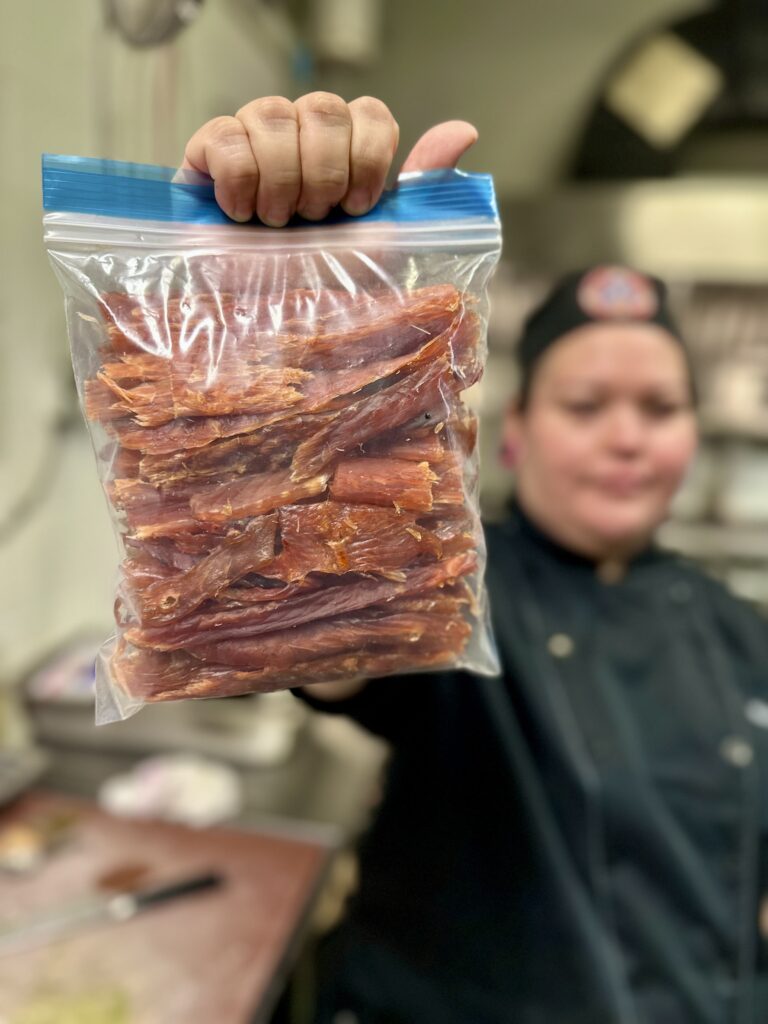
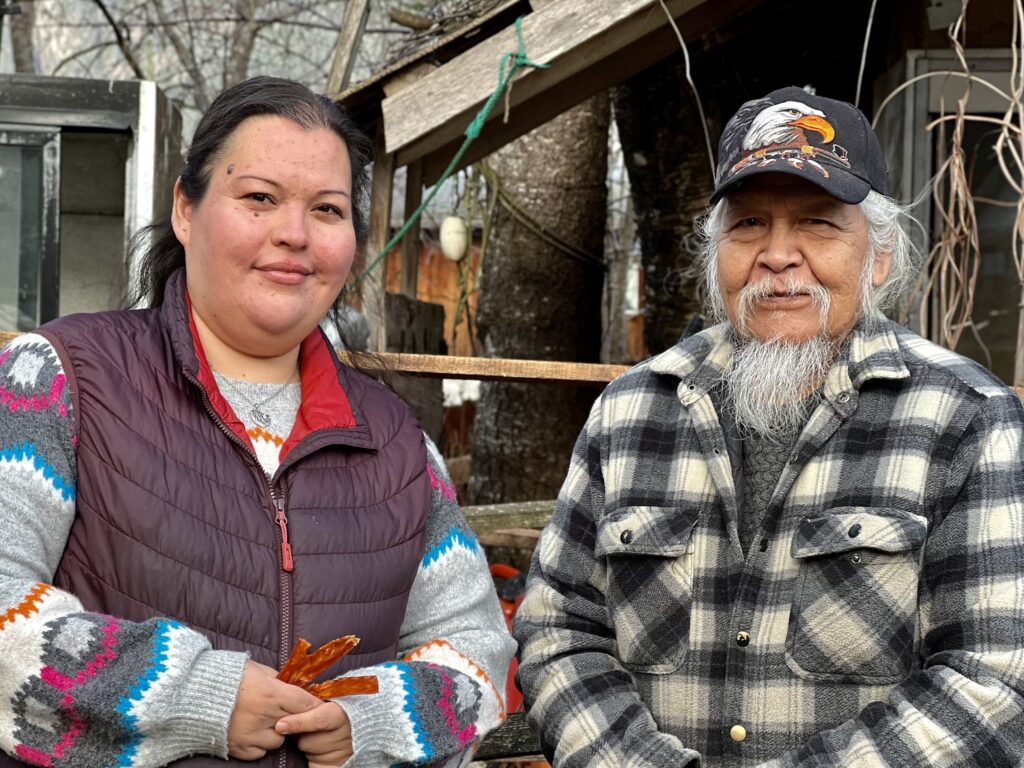
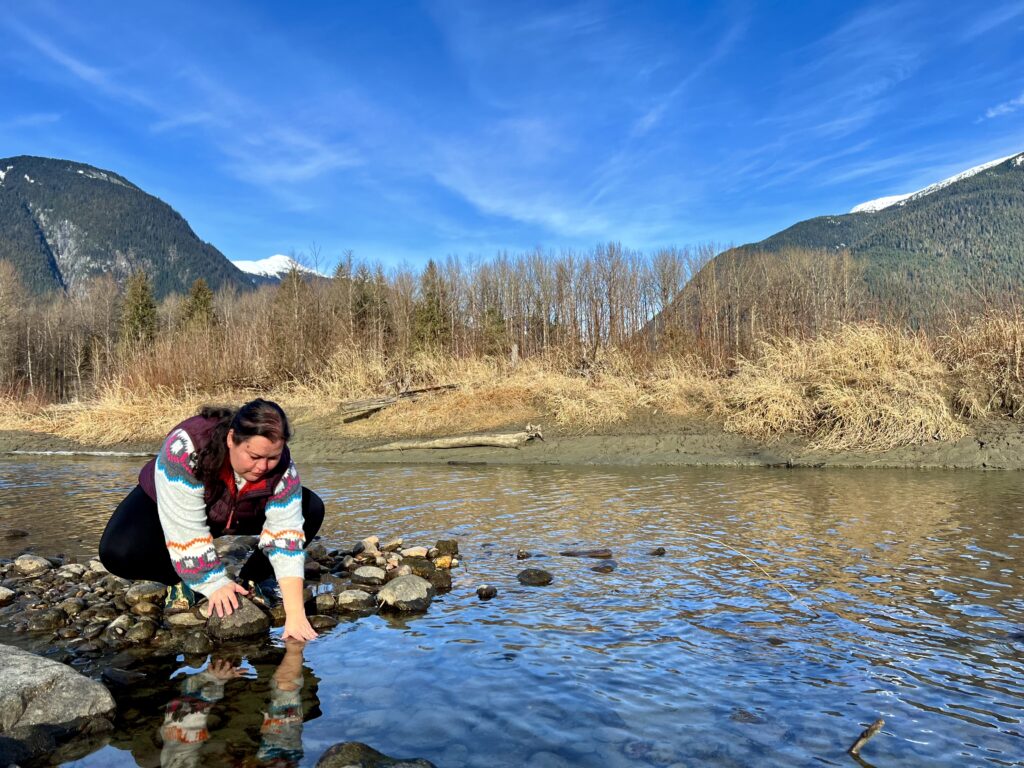
‘When it’s time, it’s time’
Nola knows how much work goes into fishing, harvesting, hunting, preparing, trading and sharing traditional foods. She thinks the amount of work, the resources needed and the limitations of colonial workplaces and time constraints turn people away.
“When it’s time to harvest, you need to set that time. You can’t just pick and choose when you want to go and cut fish or when you want to go and hunt or harvest your moose or whatever land food… you have to literally commit your time. When it’s time, it’s time,” she says. “You have no choice out there. You have to say, this is the time, this is the season, and be ready. We’re always thinking ahead.”
Nola’s grandfather will be out soon, Springtime, she says, getting his nets ready, getting his sticks for the smokehouse, sharpening his knives. It’s a year-round thing, she says. Nola expresses gratitude for the opportunities to teach outsiders about the importance of Indigenous food and food culture and that she’s not afraid to share her story.
“It’s important to continue this work. It’s my purpose. You can’t change me, this will always be me. The more we go back to who we are, learning about our cultural identity, the healthier we will be,” she says. “We don’t need to be afraid to show people who we are.”
